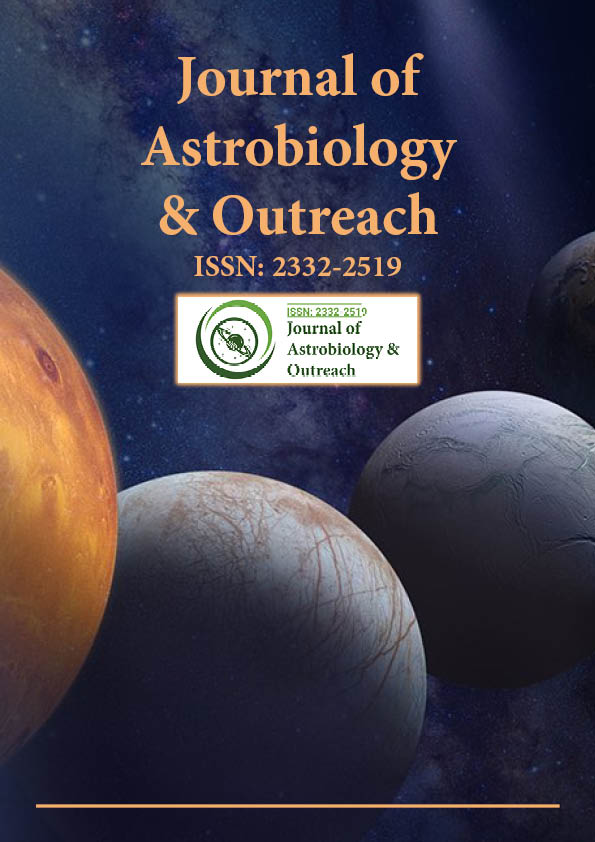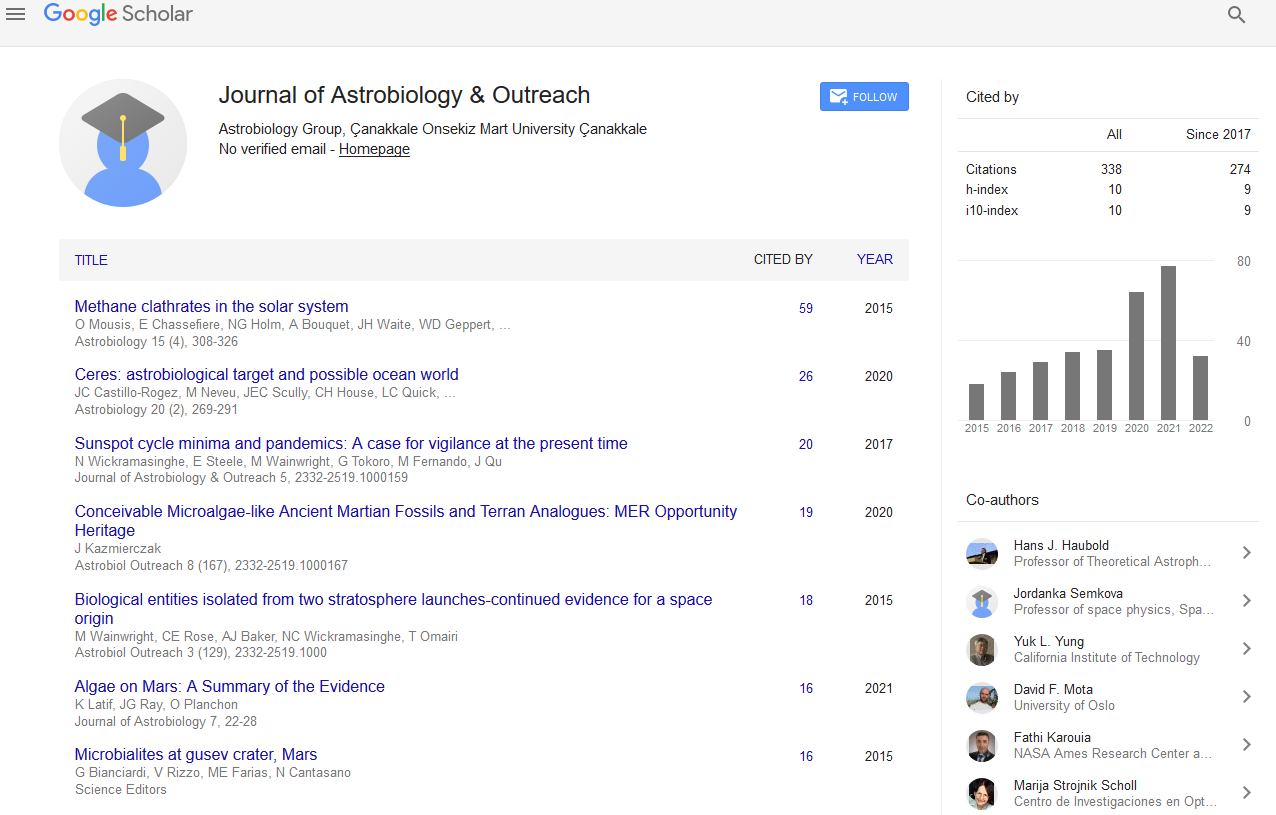Indexed In
- Open J Gate
- Academic Keys
- JournalTOCs
- RefSeek
- Hamdard University
- EBSCO A-Z
- OCLC- WorldCat
- Google Scholar
Useful Links
Share This Page
Journal Flyer

Open Access Journals
- Agri and Aquaculture
- Biochemistry
- Bioinformatics & Systems Biology
- Business & Management
- Chemistry
- Clinical Sciences
- Engineering
- Food & Nutrition
- General Science
- Genetics & Molecular Biology
- Immunology & Microbiology
- Medical Sciences
- Neuroscience & Psychology
- Nursing & Health Care
- Pharmaceutical Sciences
Abstract
Dichotomous Hypothesis of the Solar System Origin: Substantiation and Consequences for Astrobiology
The aim of this study consists in the advancement of the author’s dichotomous hypothesis of hot origin of the solar system that is alternate to the well-known hypotheses of cold accretion. The hypothesis proposes formation of solar planets and satellites through dichotomous division of the superheated protoplanetary mass ejected from the youngest Sun due to strong non-equilibrium competition between gravitational contraction and heat expansion. Like the cold accretion hypotheses, the dichotomous hypothesis also explains the key regularities of the solar system structure (angular momentum distribution, position of the asteroid belt, back rotation of Venus and Uranus, etc.). Besides, it offers explanation of new data on extra solar planetary systems that is difficult to understand basing on the gradual cold accretion process (in particular, the misaligned protoplanetary discs in the binary protostar IRS 43). Some predictions following of the given explanation can be examined during future observations. The proposed hot origin of planets and satellites provides some new opportunities and directions for search of life in the solar system, including comets and hydrothermal environments on Mars and Europa.

